Nestled in the heart of Zhejiang Province, Hangzhou lies just a short journey southwest of Shanghai, making it an accessible escape from the bustling metropolis. Renowned for its natural beauty, historic sites, and rich cultural heritage, the city has long captivated travellers with its scenic lakes, verdant tea fields, and vibrant culinary scene. With a harmonious blend of tradition and modernity, Hangzhou offers a quintessential taste of eastern China.
Also read: China Power Bank Rules 2025: What Travellers Must Know Before Flying
Day 1
Morning
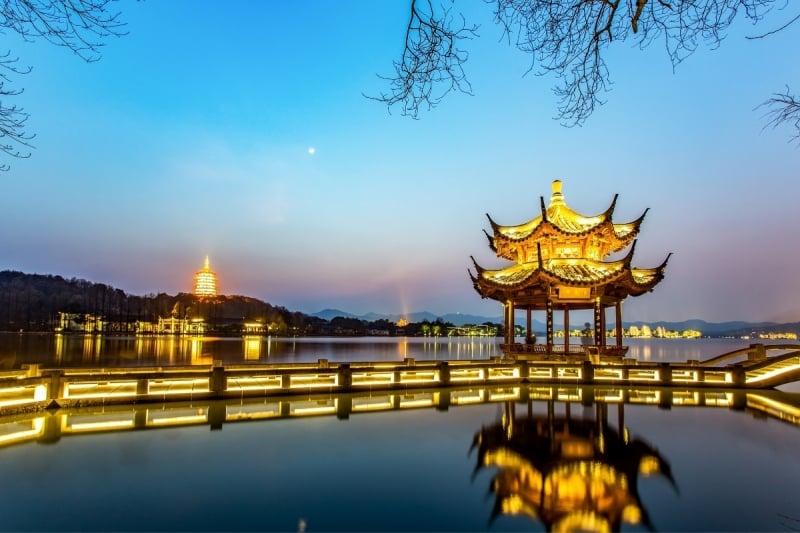
Image credit: dk1234 via Canva Pro
Begin your journey with a visit to West Lake (Xi Hu), Hangzhou’s most iconic attraction. Start at the Broken Bridge, renowned for its romantic allure, and meander along the Bai Causeway or Su Causeway. Consider taking a boat ride to Three Pools Mirroring the Moon, one of the lake’s “Ten Scenes”. The gentle breeze and picturesque views make it an ideal spot for reflection and photography.
Lunch
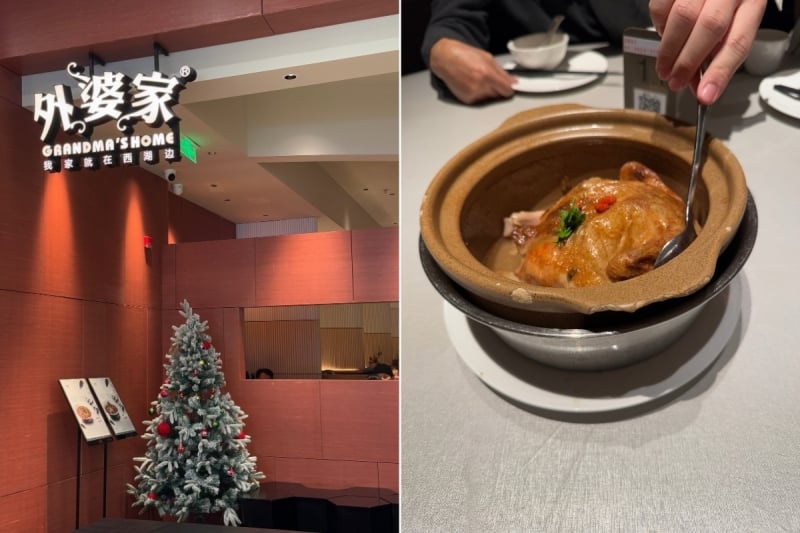
Head to IN77 Mall (also known as Hubin Yintai) for lunch. This expansive shopping complex offers a variety of dining options. Among them is 外婆家 (Grandma’s Home), a popular restaurant chain known for its authentic Hangzhou cuisine, including dishes like Green Tea Claypot Chicken and Long Jing Green Tea Shrimp. The mall itself is also a haven for shoppers, featuring both international and local brands.
Afternoon
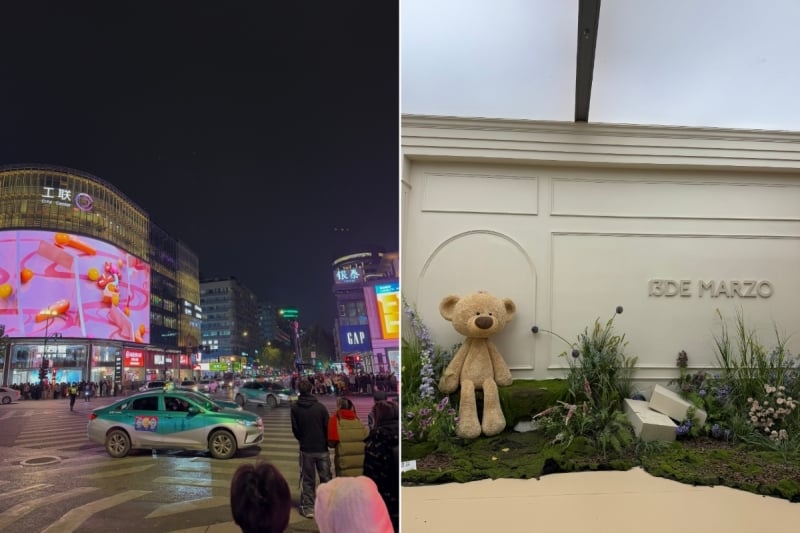
Post-lunch, explore the Hubin Pedestrian Street. This lakeside avenue is lined with boutiques, cafes, and art galleries, offering a blend of modern and traditional Chinese aesthetics.
Evening
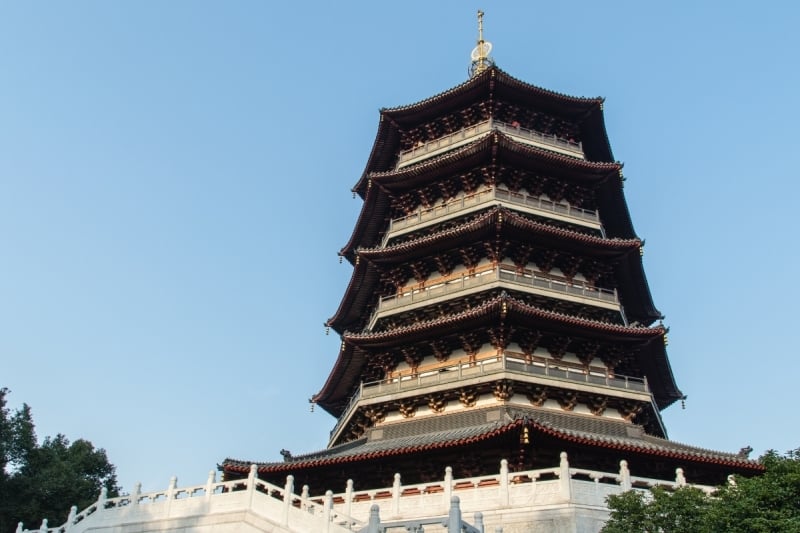
Image credit: atosan via Canva Pro
Conclude your day with a visit to Leifeng Pagoda, located on the southern shore of West Lake. Climb to the top for panoramic views of the lake and city, especially captivating at sunset.
Day 2
Morning
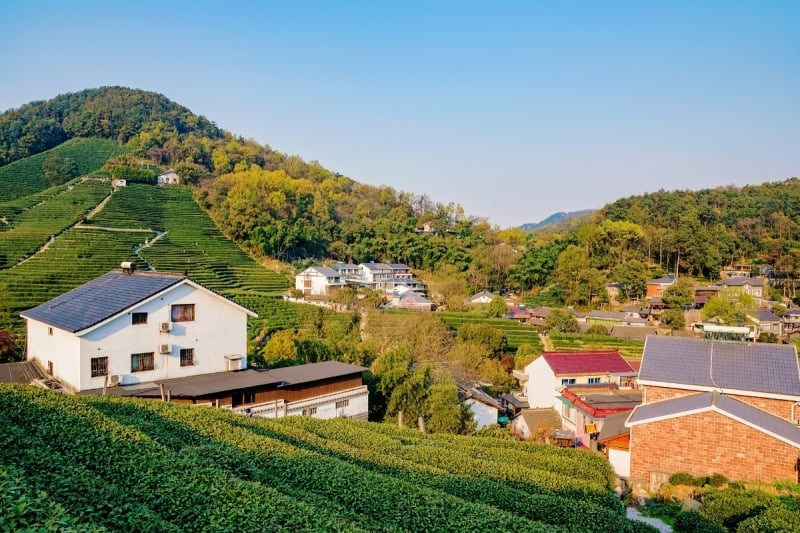
Image credit: stockinasia via Canva Pro
Start your day with a trip to Longjing (Dragon Well) Tea Village. Stroll through terraced tea fields, observe traditional tea processing methods, and sample freshly brewed Longjing tea. The village offers a peaceful retreat with its lush greenery and scenic landscapes.
Lunch
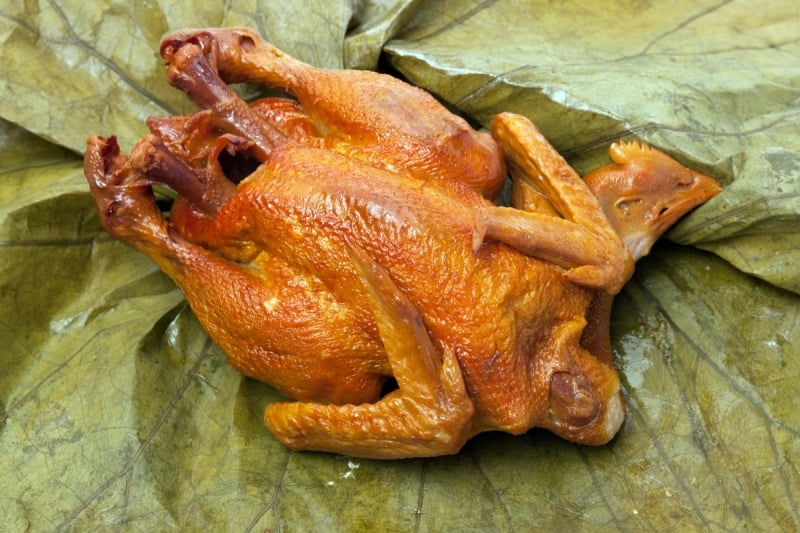
Image credit: chengyuzheng via Canva Pro
Enjoy a traditional Zhejiang-style lunch at a local restaurant in the tea village. Dishes to try include Beggar’s Chicken, marinated and slow-cooked in clay, and stir-fried river shrimp.
Afternoon
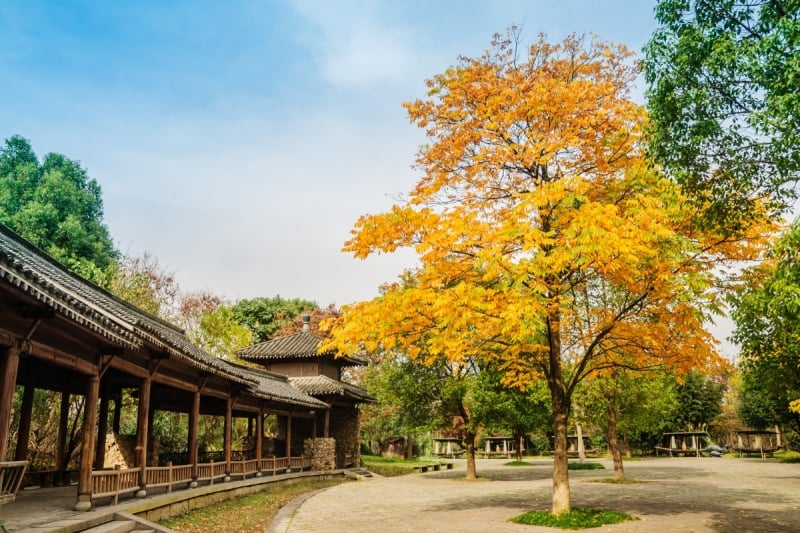
Image credit: zhaojiankang via Canva Pro
In the afternoon, visit Xixi National Wetland Park, a unique urban wetland that showcases Hangzhou’s ecological diversity. Explore its waterways, reed beds, and diverse bird species, offering a tranquil escape from the city’s hustle and bustle.
Evening
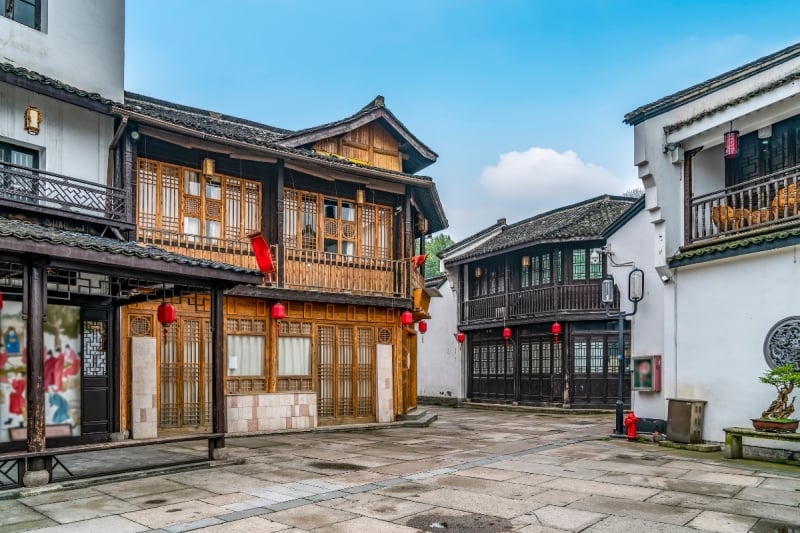
Image credit: 4045 via Canva Pro
Return to the city and take a leisurely walk along Hefang Street, a preserved ancient street that offers a glimpse into Hangzhou’s past. Browse through shops selling traditional crafts, herbal medicines, and local snacks. Don’t miss trying Hangzhou-style dumplings and sweet Osmanthus cake.
Day 3
Morning
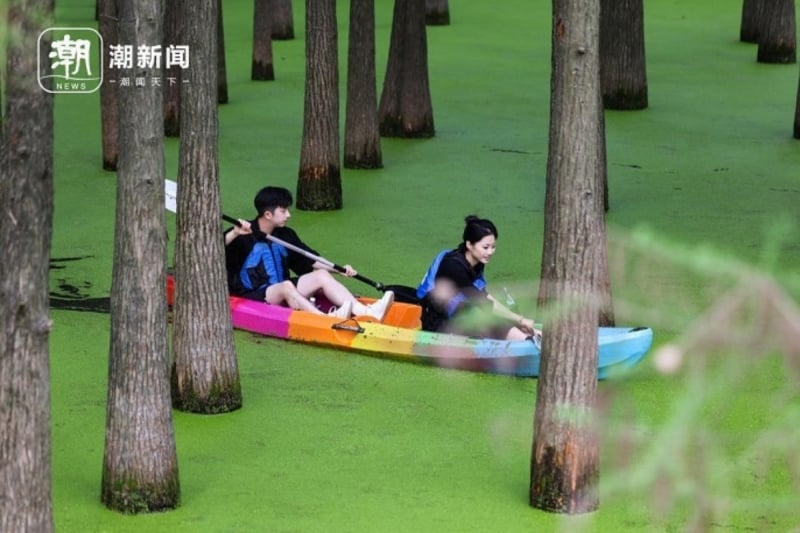
Image credit: ehangzhou.gov Official Website
Spend your final morning at Qingshan Lake, fondly nicknamed Matcha Lake for its strikingly green waters. Located on the outskirts of Hangzhou, the lake is surrounded by rolling hills and dense forests, offering a serene natural escape. You can take a boat ride, enjoy a walk along the trails, or simply admire the surreal shades of green that make it one of the region’s most photogenic spots.
Lunch
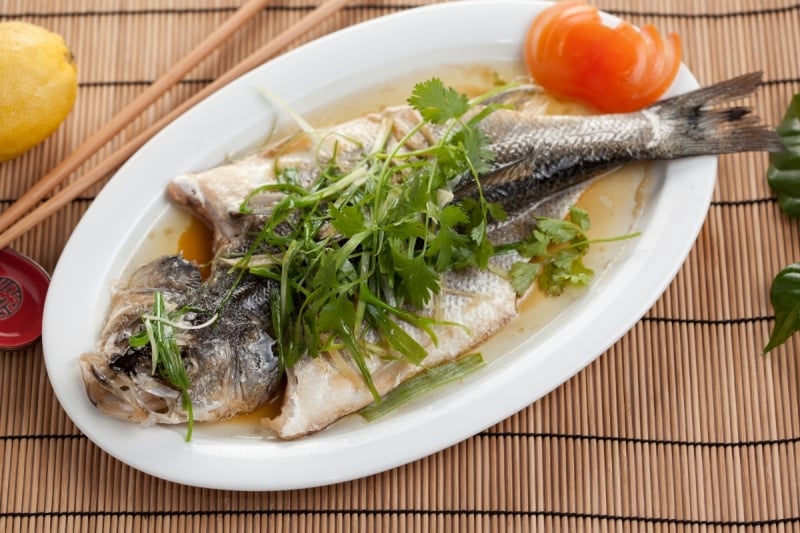
Image credit: c_yung via Canva Pro
For lunch, choose a riverside restaurant offering views of the Qiantang River. Enjoy dishes like steamed fish and stir-fried river vegetables, accompanied by a glass of local wine.
Departure
Depending on your departure time, enjoy a final stroll along the lake or relax in a local teahouse before heading to the airport or train station.
Also read: Which Bubble Tea Brand to Try in Each China Province
Travel tips
Weather: Hangzhou has four distinct seasons. Spring is mild and blooming, summer is hot and humid, autumn is cool and pleasant, and winter is damp but rarely harsh. Dress accordingly to the weather.
Language: While Mandarin is the official language, English is commonly understood in tourist areas. Learning a few basic Mandarin phrases can enhance your experience.
Currency: The local currency is the Chinese Yuan (RMB). Credit cards are widely accepted, but it’s advisable to carry some cash for smaller establishments.
Transport: Public transportation, including buses and the metro, is efficient. Taxis and ride-hailing apps are also readily available.




